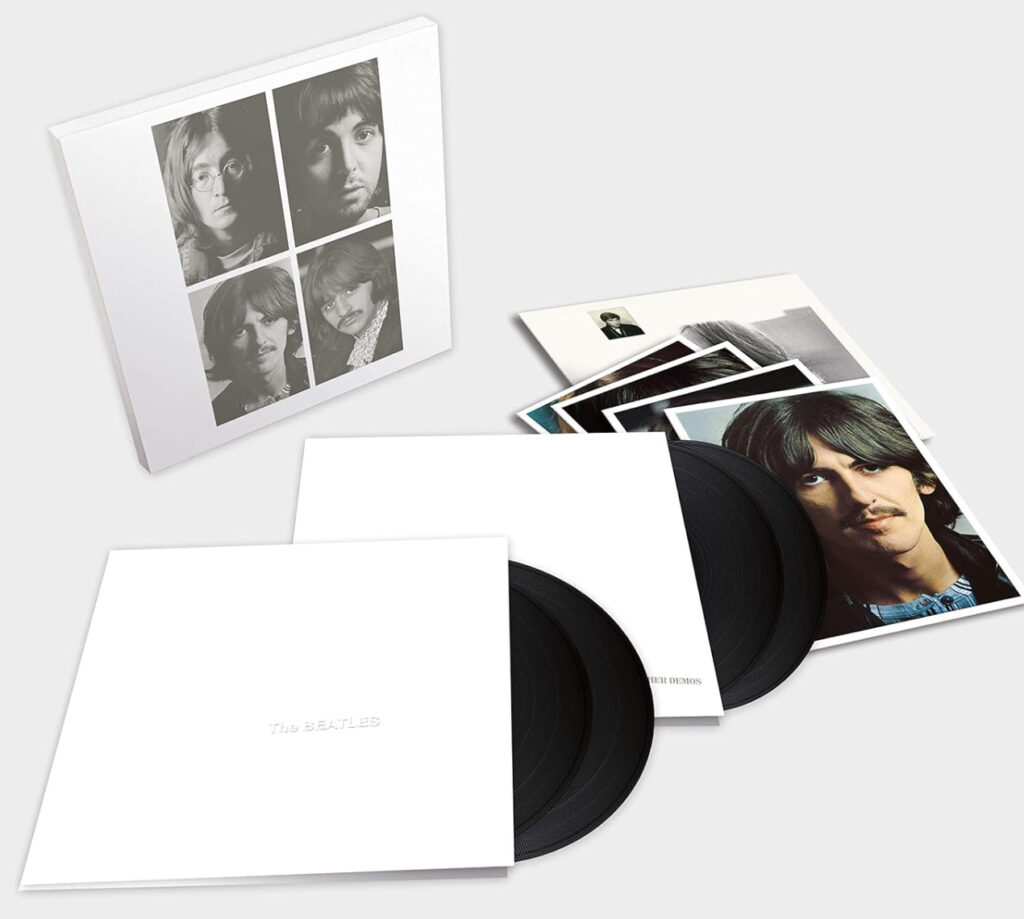For over five decades, The Beatles’ “Blackbird” has been regarded as one of the most beautiful and iconic compositions in popular music. A staple of the band’s legendary White Album (1968), the track embodies simplicity and poignancy, standing as a timeless testament to the genius of Paul McCartney’s songwriting. Despite its cultural significance and enduring popularity, “Blackbird” has achieved a surprising first in its long history: it has officially landed on the U.K.’s Official Singles Downloads Chart. This marks the first time the track has charted on any major music list in the United Kingdom—a surprising revelation considering its deep-seated legacy.
Why “Blackbird” Never Charted Before
When “Blackbird” was released in 1968 as part of The White Album, it was never issued as a single. At the time, singles were the primary way artists reached the charts, and songs relegated to album tracks—no matter how beloved—didn’t have the same exposure. The Beatles, who had already transitioned away from touring by the late ’60s, chose not to promote “Blackbird” in the same way they had pushed hits like “Hey Jude” or “Let It Be.” This decision left “Blackbird” to find its own path, flourishing primarily through word-of-mouth, live covers, and its emotional resonance with listeners.
Additionally, during its initial release period, the U.K. charts were primarily based on physical single sales, and “Blackbird” simply didn’t fit that mold. Over the decades, streaming and digital downloads have changed the way music charts are calculated, creating new opportunities for songs with enduring popularity to chart, even if they were overlooked in their heyday.
A Timeless Legacy
“Blackbird” was inspired by the civil rights movement in the United States, a theme that McCartney subtly wove into its poetic lyrics and delicate acoustic arrangement. The song’s title is both metaphorical and literal, reflecting McCartney’s affinity for birdsong and the idea of personal freedom. With just McCartney’s voice, an acoustic guitar, and the sound of a bird chirping in the background, the track achieves a level of intimacy that resonates deeply with listeners.
Despite never being released as a single, “Blackbird” became a cultural touchstone. Its understated beauty and hopeful message have made it a favorite at weddings, funerals, and moments of personal reflection. It has also inspired countless covers by artists across genres, including Sarah McLachlan, Eddie Vedder, and even jazz legend Brad Mehldau, further solidifying its place in musical history.
Modern Streaming Success
The resurgence of “Blackbird” on the Official Singles Downloads Chart underscores how streaming has rewritten the rules of music consumption. In the digital age, older tracks can find new audiences, especially when they are featured in prominent media or public events. For example, recent attention may have been sparked by its use in film, television, or social media, where classic tracks often go viral.
Streaming platforms like Spotify and Apple Music have enabled younger generations to discover The Beatles’ catalog, with The White Album often ranking as one of their most-played records. The album’s diverse collection of songs, ranging from the whimsical “Ob-La-Di, Ob-La-Da” to the haunting “While My Guitar Gently Weeps,” demonstrates the band’s unparalleled versatility. “Blackbird,” however, stands out for its timeless message and minimalist production.
The Cultural Relevance of “Blackbird”
“Blackbird” has always been more than just a song—it’s a piece of cultural history. The track’s themes of liberation and equality are as relevant today as they were in 1968, ensuring its continued resonance across generations. During moments of social upheaval, the song has frequently been used as a rallying cry for peace and progress. Its inclusion in documentaries, civil rights retrospectives, and protest playlists has only deepened its impact.
Moreover, “Blackbird” holds a special place in Paul McCartney’s live performances. It has become a staple of his setlists, with audiences singing along in unison, creating a sense of collective hope and unity. McCartney himself has often reflected on the song’s enduring significance, stating that its message of personal empowerment remains close to his heart.
The Beatles’ Chart Legacy
The Beatles’ domination of the charts during their active years was unparalleled. From their debut single, “Love Me Do,” to later masterpieces like “Hey Jude,” they set records that still stand today. However, much of their chart success came from singles specifically engineered for mass appeal. Tracks like “Blackbird,” though beloved, were often overshadowed by these juggernauts.
The fact that “Blackbird” is only now making its chart debut in the U.K. highlights how shifting listening habits and evolving chart metrics have allowed overlooked gems to finally gain their due recognition. This phenomenon isn’t unique to The Beatles; other classic artists have also seen older songs achieve newfound success in the streaming era.
The Emotional Impression of “Blackbird”
Part of what makes “Blackbird” so special is its ability to evoke profound emotion. The song’s sparse arrangement and heartfelt delivery create an intimate listening experience that feels personal to each individual. Its lyrics, while simple, carry layers of meaning, offering solace and inspiration to those who feel marginalized or oppressed.
This emotional connection has made “Blackbird” a favorite for artists who want to convey vulnerability and authenticity in their performances. Over the years, it has been reinterpreted in countless ways, each version bringing something new to the song’s already rich legacy.
Why Now?
The question remains: why has “Blackbird” finally charted now? Several factors likely contributed to this milestone. The Beatles’ music, now more accessible than ever thanks to streaming services, continues to attract new listeners. Additionally, anniversaries and retrospectives often reignite interest in classic tracks, prompting spikes in sales and streams.
The Beatles’ catalog also benefits from its association with universal themes and timeless messages. In an era marked by social and political turmoil, songs like “Blackbird” feel particularly relevant, offering a sense of hope and resilience. It’s possible that a recent cultural moment—such as a viral TikTok trend or inclusion in a prominent playlist—helped propel “Blackbird” onto the charts.
Final Thoughts
The belated chart debut of “Blackbird” is a testament to the enduring power of The Beatles’ music. Over 50 years after its release, the song continues to captivate listeners with its poignant lyrics, elegant simplicity, and universal message of hope. Its appearance on the Official Singles Downloads Chart serves as a reminder that great art transcends time, finding new ways to connect with audiences across generations.
As “Blackbird” takes its rightful place on the charts, it joins a long list of Beatles songs that have left an indelible mark on music history. While it may have taken decades to achieve this milestone, the song’s influence and significance were never in question. In the end, the journey of “Blackbird” from a cherished album track to a charting single reflects the enduring legacy of The Beatles and their ability to inspire, comfort, and unite listeners around the world.
No comments yet.








